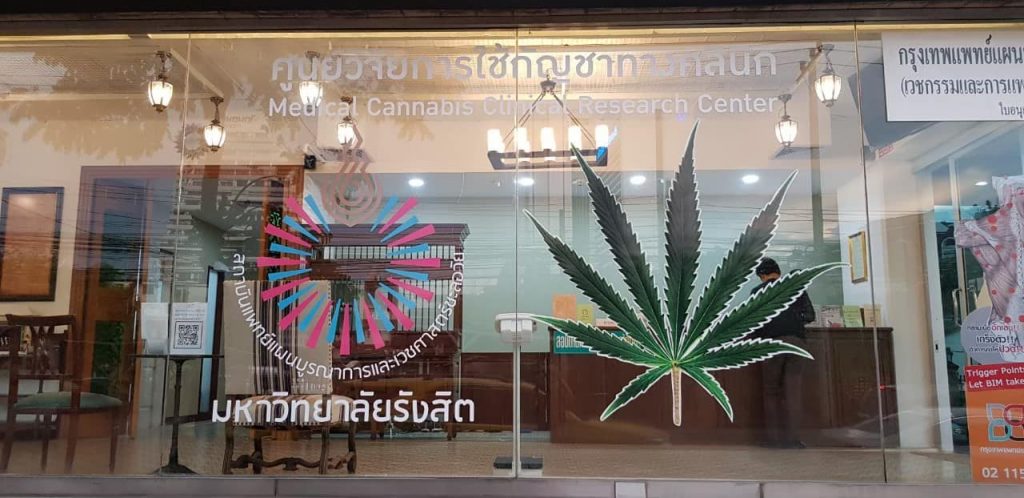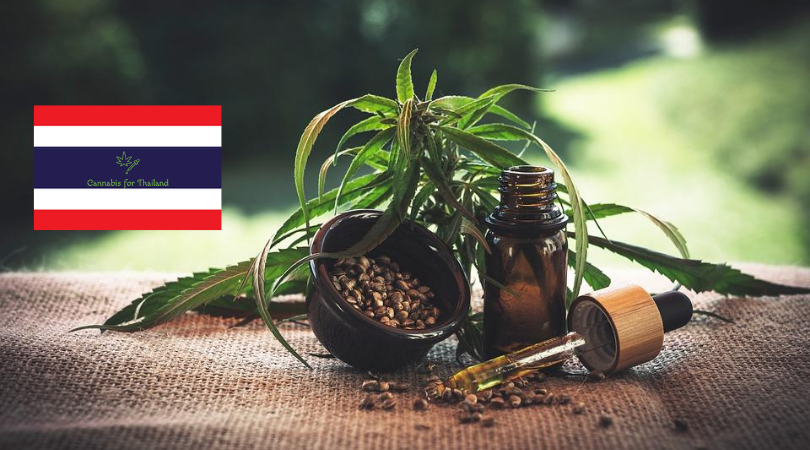Thailand is currently facing many challenges as the country purses its medical marijuana empire agenda.
The first set of obstacles that have risen to attention are the strict drug laws throughout South Asia. In many areas such as Indonesia, Singapore, and Malaysia, the act of either possessing or consuming marijuana is punished with substantial fines and even jail time. Philippine’s President Rodrigo Duterte has stirred alarm with the “war on drugs” that he’s been battling since taking office in 2016, which has resulted in the dead of at least 10,000 Filipinos.
On the opposite end of the rope, Thailand keeps pushing forward in its quest to legalize medical marijuana. The leading cause? The potential economic growth.
Just two years ago, in 2018, Thailand hit a high spot when it became the first country in Southeast Asia to legalize medical marijuana. As reported by The Bangkok Post, the law now makes it possible for consumers to carry specified amounts of the drug as long as they have a medical prescription.
The cannabis industry keeps setting milestones
Setting yet another milestone, earlier this year the first medical marijuana clinic opened its doors to treat patients with Parkinson’s Disease, cancer, insomnia, among others. More recently, on August 4, a draft amendment that would allow to grow, produce, and export cannabis and its products was approved.
With no doubt this comes as a U-turn in Thailand’s policies, which since 1935 has dotted the possession, sale, and use of marijuana as a criminal act. However, recreational marijuana remains illegal and the possession of large quantities of it can be punished with the deprivation of liberty and fines of up to $48,000.
In views of the austerity that the coronavirus pandemic has brought upon, many have set their hopes on the legalization of medical marijuana to boost Thailand’s economy.

A promising million-dollar industry
Leaders in Thailand’s medical marijuana front remain optimistic of the promising industry. In words of Prapat Panyachartrak, the Chairman of the National Farmers Council of Thailand, the nation was expected to amass a profit of $3.2 billion per year on growing and selling cannabis alone.
As for the Thai Public Health Minister, Anutin Charnvirakul, he told reporters at the beginning of the month that the new legislation on the agenda would launch Thailand as a leader of the medical marijuana niche. Anutin’s optimism is supported by Prohibition Partners’ projection of a $660 million growth by 2024, based solely on the cannabis industry.
Furthermore, Sornkanok Vimolmangkang from Chulalongkorn University in Bangkok, has referred to medical marijuana as the “sexiest” medical plant of the moment, which has unfurled the interest of different experts in the industry to meddle with its production. As for the agriculture sector, Youbin Zheng, a professor at the University of Guelph, agrees that the proposed new legislations would help to strengthen the field. But it will not be easy; to make it truly profitable and of the best quality, the production of cannabis will require top of the line technology.
Experts remain skeptical
Whereas the cannabis crop has spurred a lot of interest on the profitable side of the market, there are those who still have doubts regarding the intricacies that the project entails. Chokwan Chopaka, founder of Elevated estate, a startup focused on cannabis, emphasizes that while focusing on its economic potential, there is not a tangible understanding of how the industry works, deeming it as a poorly planned idea.
“There are a lot of questions that are rarely answered,” she said. “The government insists it wants to reinforce exports, but the how and where are not clear. There has not been any discussion in regards or regulations or standards.”
Another issue that remain is how to successfully overcome the stigmatization of cannabis as a criminal act. Chokwan highlights how in the perception of Thai society, the use of cannabis oil is frowned upon, seen as something that renders people lazy; a trait that is greatly looked down on. Moreover, she makes a remark on the public misconception of how marijuana could potentially lead to substance abuse, despite the research study by the National Institute on Drug Abuse that has revealed that most of the marijuana consumers don’t shift to harder drugs.
In fact, this concern is one of the main reasons why the appeal to marijuana has increased considerably in the last few years. According to Edward Bednarczyk, who serves as the director for the Center for Health Outcomes, Pharmacoinformatics and Epidemiology at the University of Buffalo in New York, the drug’s criminal past plays a key role in the growing number of new consumers.
“They find the illegal history of marijuana truly enticing.” He said. “We’re seeing a type of new forbidden fruit which is up for grabs.” He added.

The Thai public might not be ready for the recreational use of cannabis just yet
The different obstacles have not hindered the nation’s effort to develop a marketable medical marijuana industry, but experts on the field are not yet convinced that the country is ready to implement the recreational use of the coveted plant.
Chokwan stated that since the industry is still at the developing stages, there hasn’t been room for cultivation in the full sense of the word. Besides, she doubts that foreign producers would be willing to delve into the Thailand promising industry, giving that the government still holds strict regulations over the production of cannabis.
Even if other countries have experienced a mighty success with the legalization of recreational marijuana, experts are not so sure that the same should be expected from Thailand.
“We are not ready for it just yet,” Sornkanok affirms. “The best approach we can adopt is to take it step by step and learn from the experience.”
Finally, Chokwan, agrees that even if things are to be taken slowly, new legislation is the right path to take. “Small steps in the right direction are better than nothing.” She stated.
